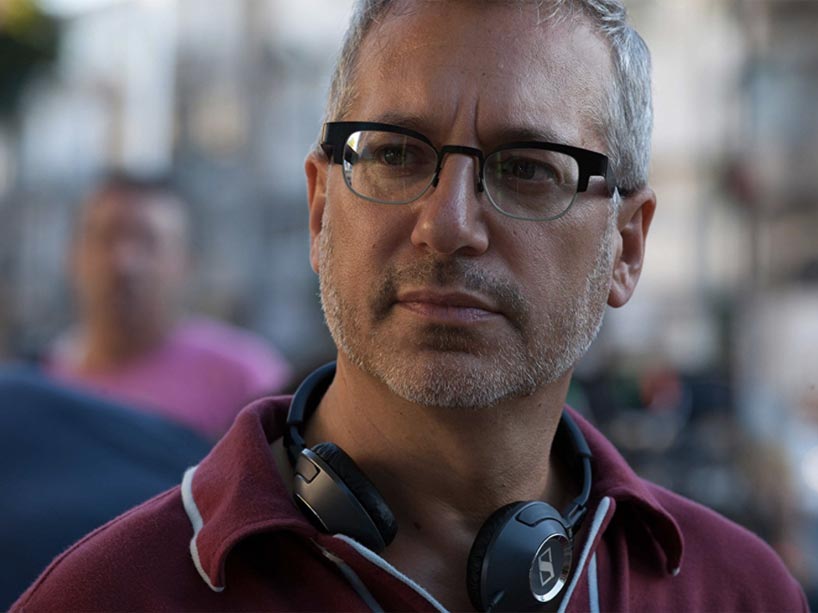Q&A with Jeremy Podeswa, "Game of Thrones" director

Photo: Jeremy Podeswa (image arts ’84) has directed episodes of Game of Thrones, Boardwalk Empire, The Walking Dead and many others.
Before he became an award-winning filmmaker and one of the most in-demand television directors, Jeremy Podeswa was a Ryerson image arts student.
On television, Podeswa has collected three Emmy nominations, and directed episodes of Boardwalk Empire, True Detective, The Walking Dead, Six Feet Under, True Blood, American Horror Story, and many more. His season seven finale of Game of Thrones, “The Dragon and the Wolf,” broke the show’s ratings record. As a filmmaker, his 1999 film The Five Senses won Genie Awards for Best Picture and Director, and his 2007 film Fugitive Pieces opened the Toronto International Film Festival. But his career began with his Ryerson thesis film David Roche Talks to You About Love, which toured the festival circuit, won the Norman Jewison Award for best student film of 1983, and was picked up by the Canadian Filmmakers Distribution Centre.
In advance of Alumni Weekend, Podeswa spoke to Ryerson Today about his time at Ryerson; the community of aspiring filmmakers he worked with; and his advice for current students.
*
What brought you to Ryerson?
I really wanted to make films. I was interested in films from a theoretical point of view, but practically speaking, I really wanted to make movies, and it felt like Ryerson was a place where I could learn not just film theory, but also the practical side of making movies. It was pretty hands-on.
Episodic television is a very fast-paced, deadline-driven environment. Did Ryerson prepare you for that?
Everything you ever learn is part of the toolkit you use. Making films as a student, you have to be extremely resourceful and you have to make decisions quickly, and you use what’s at hand. Directing television and independent films, you have to be resourceful and thoughtful and decisive, and those are all skills that you learn when you are younger.
Do you remember some of the projects you worked on?
In the third year, I made my thesis film. It was a film that was adapted from a one-man play that I saw at an experimental theatre festival, and it was called David Roche Talks to You About Love. I saw the play, I met the playwright and actor David Roche, and I asked him if I could adapt it into a film, and we made the film together. It was something that wasn’t really strongly encouraged by the faculty because it was a one-man show and it was meant to be making what they perceived as a more conventional film, but I made it quite cinematic and put flashbacks in and kind-of opened it up. In the end, the film ended up winning a lot of awards—the biggest award I won at the time was called the Norman Jewison Award for the best student film. The film ended up getting a lot of play—it played at the Toronto Film Festival—and it actually kind-of launched my career.
Are there memories that stand out?
Making my first films and really becoming comfortable with the whole apparatus of filmmaking—that was so important to me, and I felt that Ryerson really encouraged us to develop our own voices as filmmakers. It wasn’t so focused on having a career—it was focused on how to use film as a mode of artistic expression, in the way that you would write a story or paint a painting. That is something that has always been really important to me, and more important than a lot of nuts-and-bolts filmmaking—which you also get there. The most important thing was developing your own voice.
And the community of people that I met at Ryerson—my fellow students—many of them are still friends with me, and many are in the film business. The crop within of a year or two of the graduating year of 1984 was really good: there was Bruce McDonald, Peter Mettler, Adrienne Mitchell, and a lot of really cool people. We all still know each other and we’re all doing well.
In addition to developing our own voices, we were also really encouraging of each other, and we all really learned a lot from each other in an unconscious way, just watching each other work and develop.
Do you have any advice for current students?
My advice would be to find your community. I think that’s really important when you’re in school, because these are people that can be an inspiration and help to you all the way through your life and career. I think it’s also important to realize that the most freedom they’ll ever have as filmmakers is now, and now is the time to really develop their own voice, and to produce work that shows the world who they are as artists.
To me, the key thing is not to think that when you’re in school, you need to make a “calling-card” film that shows you know the craft of filmmaking. The most important kind of film you can make is something that is really idiosyncratic and personal and shows personality as opposed to a certain level of “craft,” if you know what I mean.
To me, this is a chance to show who you are and what you’re capable of, and not to waste that opportunity. It’s never going to be cheaper; you’re never going to be more supported; it’s never going to be easier. You have a community; you have teachers and advisors. This is the time to figure out who you are as a filmmaker, and not worry about, “How am I going to get a job?” or that kind of thing. It’s really, “What kind of artist do I want to be?”